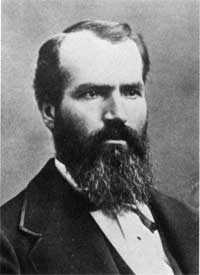
Nathaniel P. Langford
I’ll be attending a conference soon on “popular justice,” for which I had the great pleasure of reading some most interesting books on the history of popular justice in the U.S. Especially enlightening was Nathaniel P. Langford’s first-hand account of life in the Montana mining camps and towns: Vigilante Days and Ways. The book is a great read and full of interesting material. (An excellent work that provides additional insight into how justice was provided in the mining camps is Andrew P. Morriss, “Miners, Vigilantes and Cattlemen: Overcoming Free Rider Problems in the Private Provision of Law,” Land and Water Law Review, vol. 33 (1998), 581–696.)
I’ll also be participating in a panel discussion at the upcoming Mont Pelerin Society meeting in Iceland in August on the question “Is Government Necessary?,” one element of which will be discussion of the workings of Iceland’s legal system. (Especially useful works on that topic, in addition to the Sagas [of which I especially recommend Njal’s Saga and Egil’s Saga to start out] are Jesse Byock’s Viking Age Iceland [an expanded version of his earlier work Medieval Iceland: Society, Sagas, and Power] and William Ian Miller’s Bloodtaking and Peacemaking: Feud, Law, and Society in Saga Iceland. Also quite useful and interesting, especially for his thesis about the end of the Icelandid commonwealth, is Birgir Thor Runolfsson, “Ordered Anarchy: Evolution of the Decentralized Legal Order in the Icelandic Commonwealth,” Journal des Economistes et des Etudes Humaines 3 (2/3), June/September 1992, pp. 331-351, also available in the Iceland Economic Papers.) It should be an interesting discussion, given that the participants are people from whom I’ve learned a great deal and whom I admire: Birgir Thor Runolfsson of the University of Iceland, Boudewijn Bouckaert of the University of Ghent, David Friedman of Santa Clara University, and Leonard Liggio of George Mason University.










Wow. This sounds really awesome!